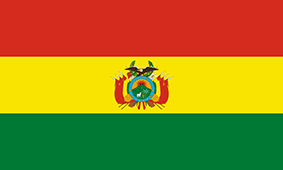
Bolivia to extend Morales era despite outcry

According to the latest vote tally issued last night, Morales secured a narrow outright victory over his chief rival, former president Carlos Mesa, in 20 October elections.
Morales, one of the few remaining regional allies of Venezuela's disputed president Nicolas Maduro, rejected charges of vote tampering and international demands for a run-off, arguing that failure to recognize his victory amounts to a political coup. Protests broke out in Santa Cruz and other cities.
Morales' next five-year term begins in January 2020.
Despite Morales' populist rhetoric, his long tenure has delivered a stable operating environment for the natural gas and minerals sectors, and the president has a pragmatic relationship with the private sector.
One of his first moves after taking office in 2006 was the quasi-nationalization of hydrocarbons, putting state-owned YPFB in charge of joint ventures. But the move did not scare off oil companies. Between 2007 and 2018, Brazilian state-controlled Petrobras invested $2.1bn, Spain's Repsol $1.7bn and France's Total $1.4bn, according to YPFB data.
Bolivia currently has 10.7 trillion cf of gas reserves, but output shrunk to 45.5mn m3/d in July from 53.2mn m3/d a year earlier. Five Repsol-operated blocks account for about half of production.
Repsol chairman Antonio Brufau was in Bolivia early this month to sign a deal to study how Bolivia can sell more gas to neighboring Brazil, where domestic gas supply is rising quickly, displacing Bolivian pipeline supply.
Argentina, the other destination for Bolivian gas, is developing its domestic shale reserves that reduce its need for pipeline imports as well. YPFB is hoping to build a 600km gas pipeline to Paraguay to diversify away from its shrinking Brazilian and Argentinian markets.
Russia has had a commercial presence in Bolivia for years, but investment is limited so far. The Russian embassy in La Paz says Gazprom intends to invest at least $2bn in gas blocks in Bolivia. And Russia's state-owned fertilizer company Acron reached a deal with YPFB shortly before the elections to buy Bolivian gas for a fertilizer plant it acquired in Brazil.
In a final pre-election act, Morales inaugurated the new privately owned Granosol plant that will make ethanol from sorghum. YPFB will purchase 6mn l/yr from the plant, which is located in Santa Cruz department. Bolivia launched a 10pc ethanol blend in 2018 and in March announced a 5pc biodiesel blend.
"Private investment is guaranteed in the constitution and I have a big economic plan that will allow Bolivia to continue expanding economically," Morales said at the signing event.
The Morales campaign has touted the success of his gas policy. The government boasts of $38bn in gas revenue since the nationalization. The president stressed this again yesterday, showing journalists documents from a previous administration calling for the sale of YPFB.
The Morales government also plans to move more aggressively on lithium. Bolivia has an estimated 9mn tons of lithium reserves, second in the world behind Argentina, according to the US Geological Survey.
The government has deals in place with Germany's ACI Systems to develop brine lithium reserves in the Uyuni salt flats in Potosi department and with a Chinese group to tap reserves on two salt flats in Oruro department.
Mesa's opposition coalition would have reviewed the lithium contracts had he won.


Trump weighs using $2 billion in CHIPS Act funding for critical minerals

Codelco cuts 2025 copper forecast after El Teniente mine collapse

Electra converts debt, launches $30M raise to jumpstart stalled cobalt refinery

Abcourt readies Sleeping Giant mill to pour first gold since 2014

Barrick’s Reko Diq in line for $410M ADB backing

Nevada army depot to serve as base for first US strategic minerals stockpile

Tailings could meet much of US critical mineral demand – study

Viridis unveils 200Mt initial reserve for Brazil rare earth project

SQM boosts lithium supply plans as prices flick higher

Energy Fuels soars on Vulcan Elements partnership

Northern Dynasty sticks to proposal in battle to lift Pebble mine veto

Giustra-backed mining firm teams up with informal miners in Colombia

Critical Metals signs agreement to supply rare earth to US government-funded facility

China extends rare earth controls to imported material

Galan Lithium proceeds with $13M financing for Argentina project

Silver price touches $39 as market weighs rate cut outlook

First Quantum drops plan to sell stakes in Zambia copper mines

Ivanhoe advances Kamoa dewatering plan, plans forecasts

Texas factory gives Chinese copper firm an edge in tariff war

Energy Fuels soars on Vulcan Elements partnership

Northern Dynasty sticks to proposal in battle to lift Pebble mine veto

Giustra-backed mining firm teams up with informal miners in Colombia

Critical Metals signs agreement to supply rare earth to US government-funded facility

China extends rare earth controls to imported material

Galan Lithium proceeds with $13M financing for Argentina project

Silver price touches $39 as market weighs rate cut outlook

First Quantum drops plan to sell stakes in Zambia copper mines

Ivanhoe advances Kamoa dewatering plan, plans forecasts

















